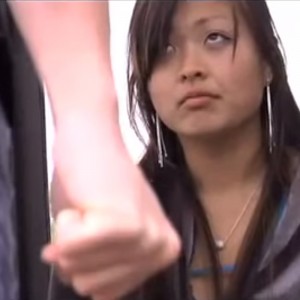Is someone you know a victim of dating violence? Are you in an abusive relationship? What can you do to help yourself or your friends? What are your rights in a relationship? Let’s find out.
What is Dating Violence?
Dating violence is a set of abusive behavior that a person shows towards another in a relationship. Violence does not have to be physical; it can be in the form of verbal, emotional, sexual, or financial abuse. Dating violence can happen to people of any race, culture, age, and religious background. It occurs in homosexual as well as heterosexual relationships.
Quick statistics:
Dating violence may be more prevalent than you think:
- 1 in 3 teenagers reported knowing a friend who has been hit by their partner. (2005)
- 62% teenagers said they know friends who have been verbally abused by a boyfriend/girlfriend. (2008)
- 26% girls in a relationship reported experiencing repeated verbal abuse. (2008)
- Nearly 1 in 5 teenage girls who have been in a relationship said a boyfriend had threatened violence or self-harm when the girl suggested break-up. (2005)
What are the Different Forms of Abuse?
- Physical abuse: Hitting, kicking, choking, pulling hair, throwing things, driving extremely fast, imprisoning, or using weapons to threaten or hurt a partner.
- Emotional abuse: Insulting, blaming, being extremely jealous or controlling, monitoring a partner’s activities, preventing the partner from going to school or work, isolating the partner from friends or family, making up stories, or spreading harmful rumors.
- Verbal abuse: Yelling, name-calling, putting-down, or threatening a partner. The abuser may threaten to hurt oneself, the partner, friends, or family members.
- Sexual abuse: Forcing a partner to have sexual relationship or behavior, attacking private body parts, or spreading sexually transmitted diseases (STDs) on purpose.
- Financial abuse: Taking money, preventing a partner from going to work, purposely damaging a partner’s credit history, or threatening to interfere with immigration or employment status.
Warning Signs of Abusive Behavior:
- Extreme jealousy or possessiveness
- Frequent mood swings
- Attempts to isolate you from friends or family
- Blaming you for his/her problems
- Believing in rigid gender roles
- Using force or threats during an argument
- Showing any form of physical, verbal, emotional, sexual, or financial abuse, as described previously
Helping a Friend who might be in an Abusive Relationship:
Signs of a victim:
- Changes in mood or personality
- Persistent sadness
- Unwilling to express oneself
- Withdrawal from social activities
- Insisting on more privacy
- Falling grades
- Unexplained wounds or injuries
- Making excuses for the abuser
Things you can do:
- Help your friend recognize the abuse
- Let your friend know that the abuse is not his/her fault
- Show your concern and support
- Listen to what your friend has to say, and keep what he/she says confidential
- Be sensitive and understanding; realize that there are many reasons why victims stay in abusive relationships
- Respect your friend’s decisions, including those you may not agree with
- Encourage your friend to participate in activities outside of the relationship
- Inform your friend that he/she can get help from many free and confidential services
- Encourage him/her to talk to someone who can provide guidance
Where to Get Help:
No one deserves to be abused. If you are being hurt in your relationship, or are afraid that you might be at risk, you can receive free and confidential advice from:
- National Teen Dating Abuse Helpline: 1-866-331-9474 www.loveisrespect.org
- National Domestic Violence Hotline: 1-800-799-7233 http://www.ndvh.org/
California Youth Crisis Line: 1-800-843-5200 http://www.youthcrisisline.org/




